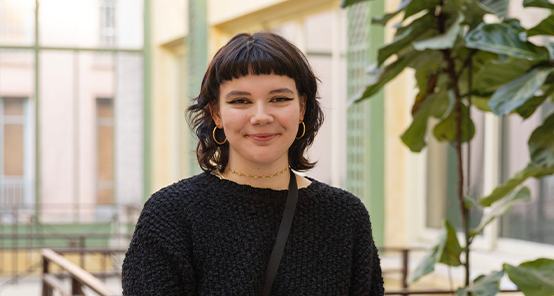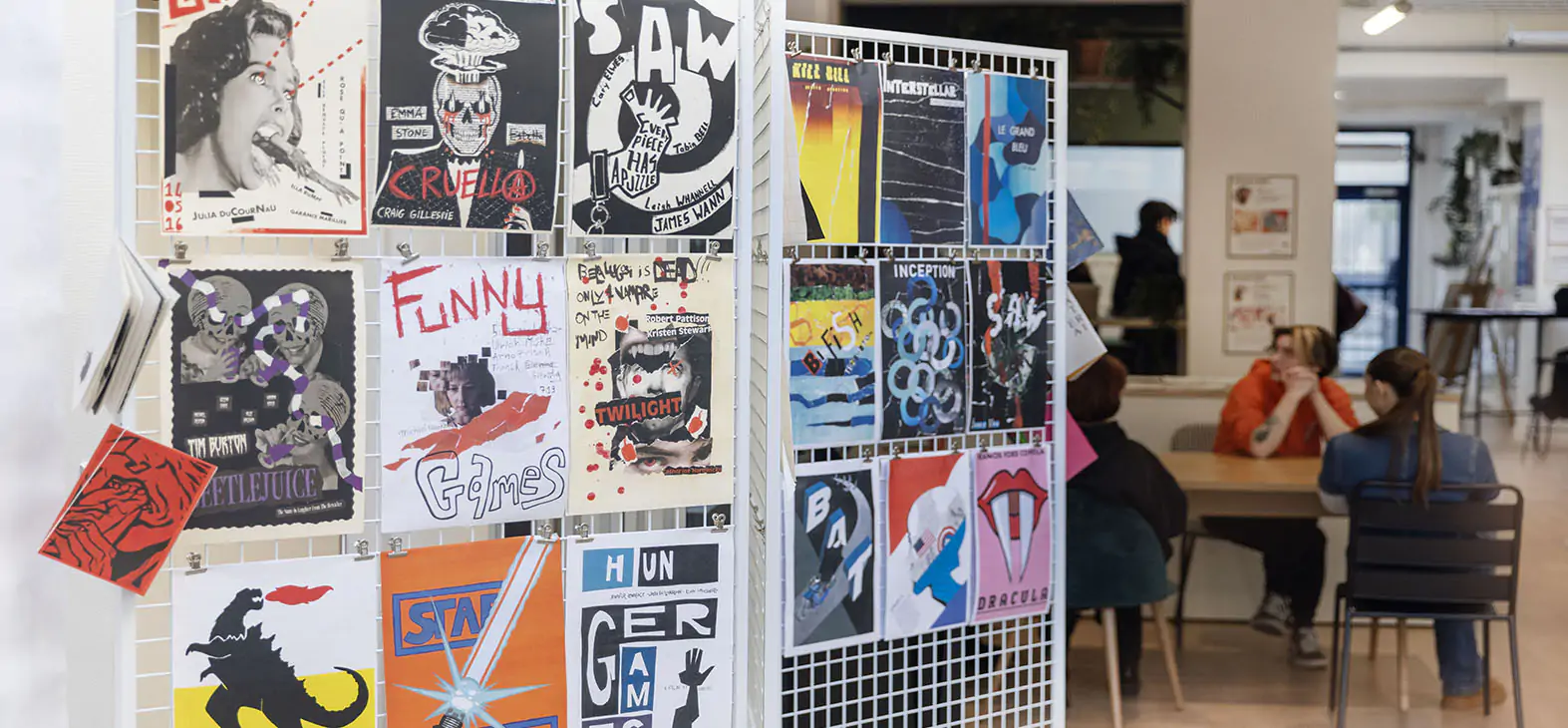International Master in Art Direction
The International Master: Graphic Design for Art Direction is a two-year course taught in English, aimed at creative profiles wishing to pursue an international career. The course enables students to explore art direction, graphic design and visual communication through the prism of foreign countries. The course meets a growing demand from professionals for employees with profiles that are open to the world, with a more cross-disciplinary approach to the design professions, capable of managing teams and responding to projects with a global vision.
The programme is based on a teaching method centred on projects organized into 7 6-week modules. Each module offers an in-depth analysis, from a multicultural perspective, of a geographical area, a societal theme and business expertise.

This programme leads to RNCP qualification no. 34364 Designer - project manager level 7 (Bac+5 level) registered by decision published on 16/12/2019 - EDC certifier
Examination pass rates
About the international master
The aim of this course is to train Art Directors with international career ambitions by working on multi-cultural projects abroad or in international units. The programme allows to become an international art director through the prism of foreign countries. The multi-disciplinary training to acquire an international graphic culture, international research and content.
- Level: M1/M2
- Terms and conditions: Hybrid (80% face-to-face / 20% online)
- Duration: 2 years (48 to 50 weeks)
- Hours worked: In 2 years = 430 hours of classes / 4 weeks of workshops / 7 months of work experience
- Period: Back to school in early October. Courses end in mid-May in M1 and at the end of March in M2.
- ECTS credits: 120 (60 per year)
Target skills & Programme

Find out moreContinuing on to the International Master’s programme will enable me to expand my knowledge of art direction while improving my English
Marie - Bachelor Graphic Design at ECV
Rhythm & Duration
The Master’s in Art Direction represents: 120 ECTS credits – 430 hours of classes – 7 months of internship – 4 weeks of workshops. This is an initial course (student status):
- Year 1: Training from October to April – Work placement (3 to 4 months) starting in May
- Year 2: Training from October to March – Work placement (4 to 5 months) starting in April
Study Design with an international perspective
Objectives
➝ To enable creative people to design messages that respond to an identified issue
➝ Be able to translate the concept visually and manage the production of formats adapted to the digital ecosystem
Skills
➝ Ability to develop creativity by drawing on graphic skills and culture
➝ Ability to respond to a request using graphic design tools
Methods used
➝ Courses given by professionals working in the field of Design, either face-to-face or distance learning
➝ Case studies from partner companies
➝ Competitions, Workshops, Events…
➝ Production of oral and written content
Access route
➝ This qualification is accessible in blocks of skills and is prepared by the VAE route and in initial training (under student status).
Further information on assessment methods and certification procedures can be found on the RNCP Certifications page.
Professions and career opportunities
The job of Art Director can be practiced in a number of settings: in creative or design offices within companies; in design agencies of various sizes; on a freelance basis.
How to apply?
Applications for the ECV are open from October. Places are limited until the end of September, subject to admission conditions. Admission to the ECV Master’s programme is based on an interview and presentation of an application file.
Prerequisites:
- Bac+3/+4 level or equivalent RNCP level 6 qualification in Graphic Design
- Level of English: C1 C2
- Admission process: admission interview following examination of the application
Admission Process
Students who are EU nationals or French nationals
If you are a national of a country in the European Economic Area (EU plus Iceland, Norway and Liechtenstein) or Switzerland, you do not need to obtain a student visa to study or do a work placement in France. You are free to enter France whatever the duration of your stay or studies.
Non-EU students
You need a student visa to study or do a work placement in France. Your final admission is conditional on obtaining a VISA at the end of the admissions process. For more information: admission@ad-education.com
Following your request for an appointment online or by telephone, you will be contacted within 24 to 48 hours to arrange the date of your admission interview remotely after your application has been studied.
Before the interview, you must prepare your complete application file with the required documents and send it to us for review:
- a portfolio of your personal work
- a letter of motivation,
- your most recent report cards and/or diploma
- a CV
For full English programme:
- Level of English: B2 equivalent
- IELTS 5.5 – 6.0
- TOEIC – Total 785 – 940
- Cambridge English Scale 160 – 179
- TOEFL iBT 72 – 94
The admission interview will enable us to assess your motivation, your plans, your level of general and artistic knowledge and to discover your creative world.
Following the admission interview, you will be informed of our decision within 8 days at the latest. This decision applies to all our campuses. A registration form will be sent to you by e-mail with a link to the 100% online admissions platform. To confirm your enrolment, simply fill in your personal details, sign all the documents requested and pay the enrollment fee*.
*The application fee is charged for the first year of enrolment. They may be carried over to the following year if you fail to obtain a diploma required for enrollment. They are non-refundable and remain the property of the school, even in the event of cancellation.
Tuition fees
Tuition fees can be paid in 1, 3 or 6 instalments. Other payment methods may be agreed on a case-by-case basis.

